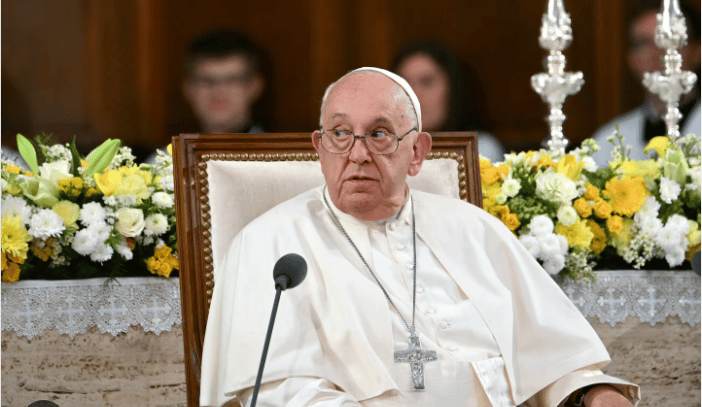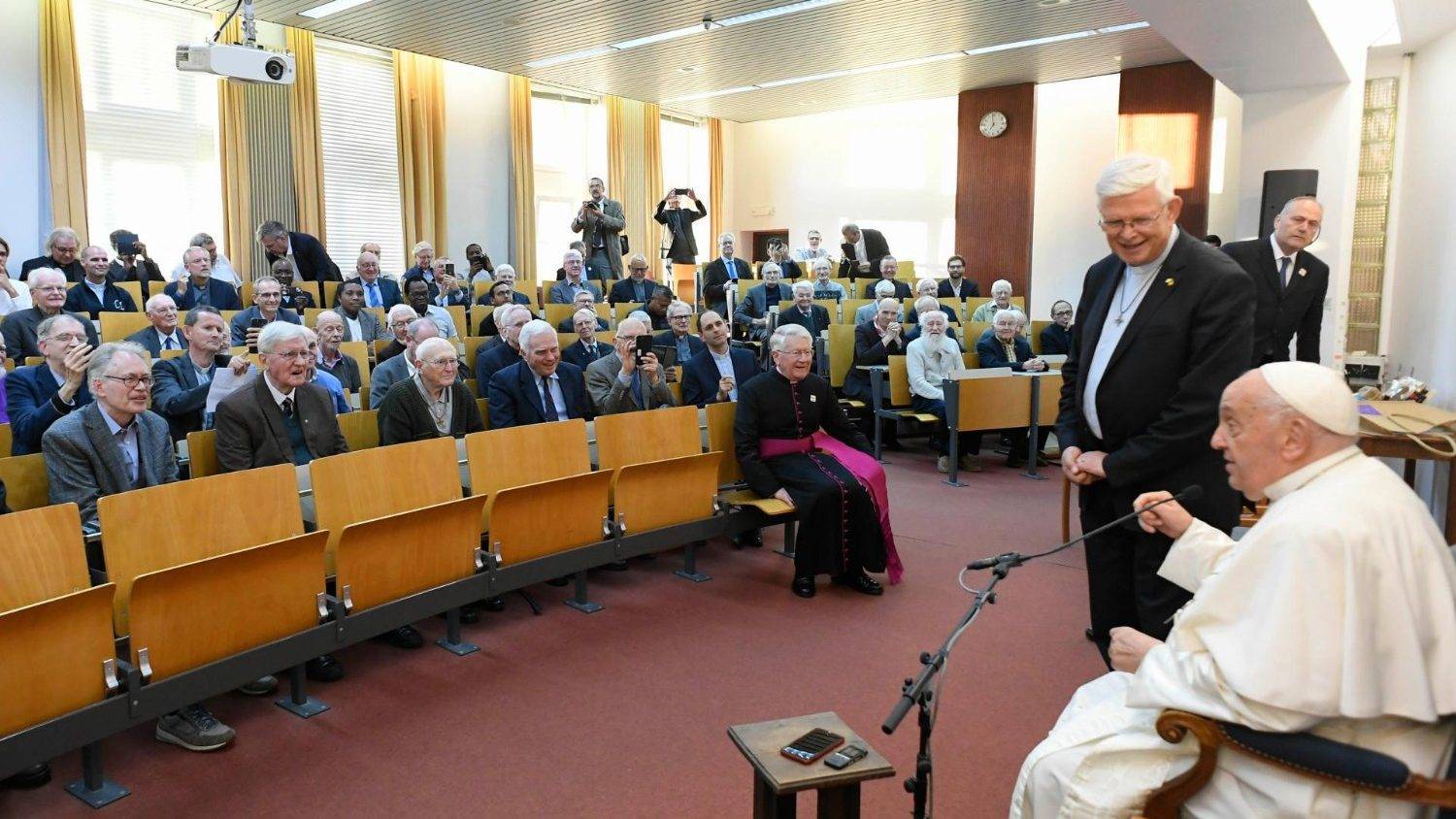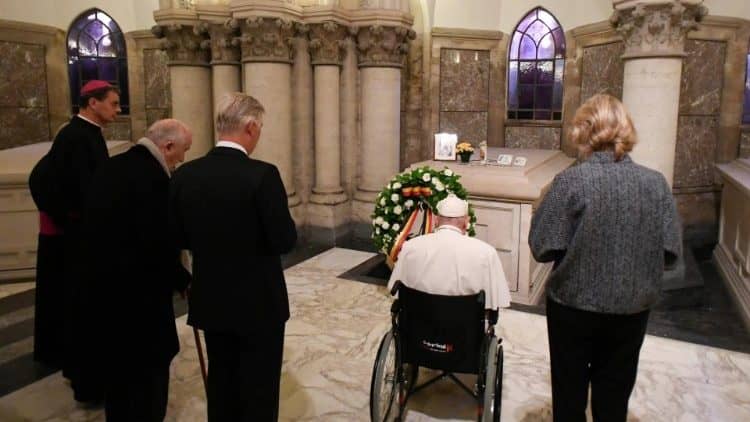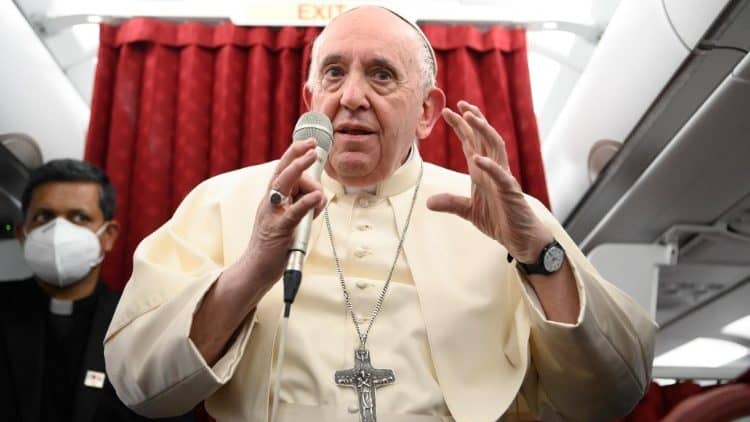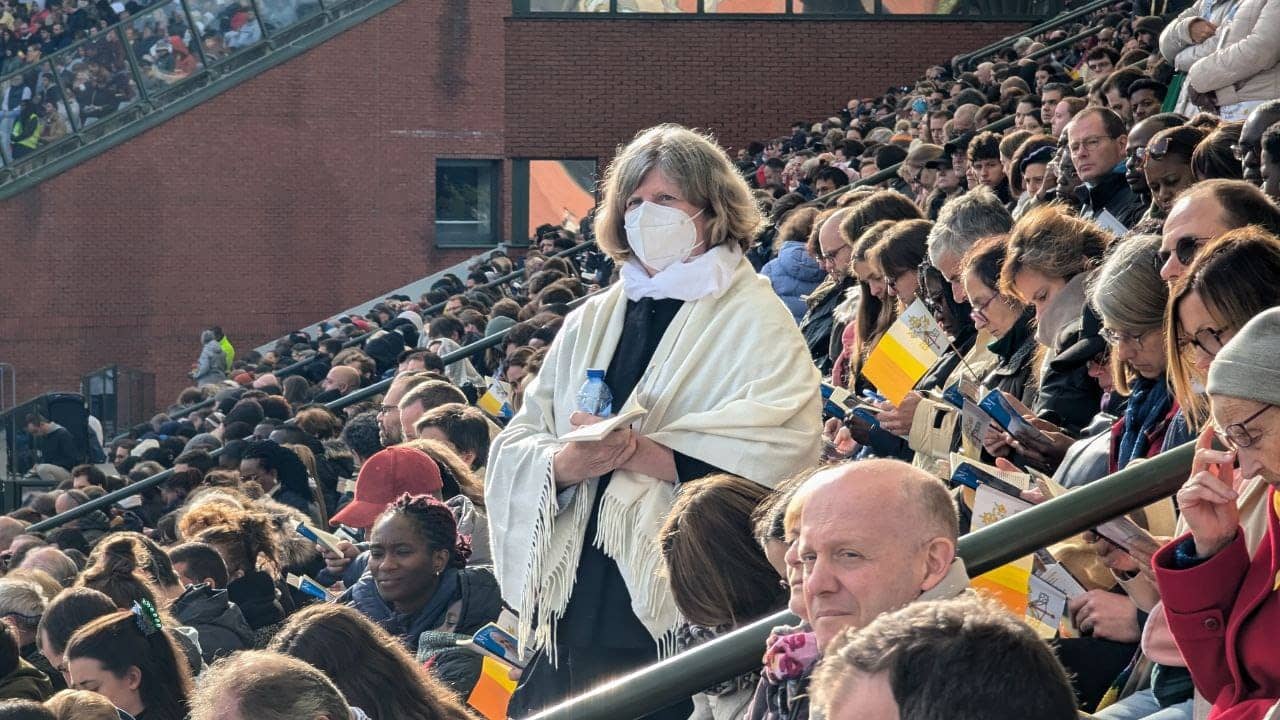ROME – At the outset of his long weekend outing to Luxembourg and Belgium, Pope Francis told journalists on the papal plane he was going to skip the customary swing through coach to greet them all, saying he was too tired. The decision came after Francis cancelled a couple of audiences earlier in the week due to what the Vatican described as a cold.
It’s a good bet that Friday in Belgium didn’t do a lot to perk the pontiff up either, as it was one of the tougher days he’s had on the road in a while.
There was Belgian Prime Minister Alexander De Croo, scolding Francis over the Church’s sexual abuse scandals. There too was Rector Luc Sels of the Catholic University of Leuven, opening calling for women priests, a proposal to which Francis has already delivered a firm “no,” and also pushing the Church to be even more open to the LGBTQ+ community.
And, in remarks to reporters, there was Benedict Lemley, the dean of Leuven’s theology faculty, casually saying that the Church’s hangup with “universal truths” can be a problem at a Catholic university that seeks to be “critically loyal” to the faith.
Even the pope’s meeting late Friday evening with a group of sexual abuse survivors, intended as a gesture of pastoral sensitivity, drew fire from one advocacy group that referred to the session as mere “damage control.”
All in all, not an easy day to represent institutional religion in one of the most thoroughly secular societies on earth – and all of that came on top of the fact that it was a cold and rainy day in Brussels, adding to the slightly gloomy vibe.
Through it all Francis kept on-message, insisting that the Church “never conform to the predominant culture, even when that culture uses, in a manipulative way, values derived from the Gospel, drawing from it inauthentic conclusions that cause suffering and exclusion.”
The day began with Francis’s meeting with King Philippe & Queen Mathilde, followed by his encounter with De Croo, who’s currently acting as a caretaker until a new government can be formed.
If this was his swan song, De Croo seemed determined to make the most of it.
“We cannot ignore the painful wounds that exist in the Catholic community and in civil society,” he told the pope. “Numerous cases of sexual abuse and forced adoptions have undermined trust.”
“You’ve committed to a just and fair approach, but the path is still long,” De Croo told the pope. “Ministers of the Church work with conviction and charity, but if something goes wrong, cover-ups are unacceptable.”
Belgium has been especially hard hit by the clerical abuse scandals, including the notorious case of former Bishop Roger Vangheluwe, who stepped down after admitting to abusing minors, including two of his own nephews.
“Today, words aren’t enough,” De Croo said. “Concrete steps must be taken. Victims must he heard and occupy a central place. They have a right to the truth, and injustices must be recognized.”
“To be able to look to the future, the Church first must come clean about its past,” he said.
Francis didn’t duck the point, calling abuse “a scourge that the Church is addressing firmly and decisively by listening to and accompanying those who have been wounded, and by implementing a prevention program throughout the world.”
Yet negative reaction to the abuse scandals wasn’t the only sour note the pope heard, as Sels, the rector at Leuven, also pushed him on the role of women in the Church.
“The authority of the Church also depends on the extent to which it welcomes the diversity in society,” Sels said, asking out loud why Catholicism “tolerates this enormous divide between men and women, in a Church which de facto is often led by women?”
“Wouldn’t the Church be more cordial if it gave women a more prominent position, including in the priesthood”? he asked – knowing full well, of course, the pope has already given his answer, so it was more a rhetorical query.
Sels also called for a more open position on LGBTQ+ issues, saying “the Church throughout the world is called to bring recent scientific discoveries into dialogue with theology,” and added that Catholicism should be wary of “once and for all” answers.
Finally, Lemley, the dean of the theology and religious studies faculty at Leuven, informed the pope that while the university is “at the service of our Church,” that commitment is expressed in what he called “a critically loyal way.”
“A true friend doesn’t always tell you what you like to hear,” Lemley said. “He also says … what you need to improve.”
Lemley presented the pontiff with a book entitled The Bishop of Rome and the Theologians of Leuven, which includes, among other things, a chapter devoted to “rethinking Church norms on sexuality.”
The book begins with an honest admission: “This papal visit is not without controversy, partly because of the many scandals surrounding sexual, emotional and spiritual abuse in the Church,” the introduction says. “Those who associate themselves with her cannot count on much goodwill from society and culture.”
Lemley suggested the Church may need to rethink some fundamentals.
“I think a problem that the Church today is facing is that it has a tendency to try to find universal truths, you know, universal dogmas, universal views … that is somehow a problem because we have so much different countries with so much different cultures, and some are secularized, some were not.”
“And so as long as we try to have one universal, untouchable truth for all and everyone, that is difficult,” he said – once again creating a bit of a headache for a pope who represents a Church that purports to proclaim just such universal truths.
In his own way, Francis didn’t back down from the challenge, telling professors at Leuven Friday afternoon that “it is a fine thing to view universities as generating culture and ideas, but above all as promoting the passion for seeking truth, at the service of human progress.”
Francis lamented what he called the “intellectual weariness” of those who refuse to seek truth and thus remain in a “permanent state of uncertainty, lacking all passion, as if the search for meaning were useless and reality were incomprehensible.”
It amounted to a powerful counter-note at the end of a difficult day – one in which Francis himself might be forgiven feeling a bit of weariness, if not intellectual then at least physical and, perhaps, even pastoral.
